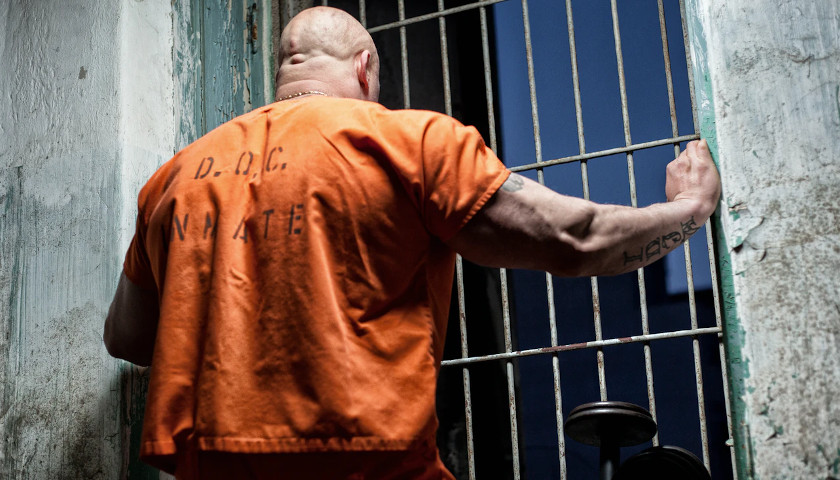Governor Bill Lee hosted a roundtable to discuss criminal justice reform on Wednesday, as part of a national conservative campaign called “Right on Crime.” The discussion centered on the general agreement that rehabilitation should be emphasized more for prisoners. No specifics were offered during the roundtable.
On the call were Newt Gingrich, former U.S. Speaker of the House; Pat Nolan, Director Emeritus of the American Conservative Union Foundation Nolan Center for Justice; Rick Perry, former Governor of Texas and former Trump Administration U.S. Secretary of Energy; Brook Rollins, former Trump Administration acting director of the U.S. Domestic Policy Council and former president and CEO of the Texas Public Policy Foundation; and Josh Smith, a member of Lee’s Criminal Justice Reinvestment Task Force.
Lee explained that his motivator was his involvement with Men of Valor, a prison ministry. He added that his reforms were inspired by a sense that greater justice could be achieved.
“I really saw firsthand the tension and the push and the pull between retribution and rehabilitation,” explained Lee. “I also saw a system that wasn’t really working well for anybody.”
Gingrich cited certain faith-based prison initiatives led to lowered recidivism rates. He also said that Tennessee spent around $23,000 on prisoners as compared to $10,000 on high school students.
“We’re often cautious, which isn’t a bad thing for conservatives,” said Gingrich.
However, Gingrich noted that he wasn’t advocating for a George Soros-type approach where there’s a hesitancy to prosecute crime, such as in San Francisco and Philadelphia. He also acknowledged that there were a small subset of violent people that should be kept away from society.
Gingrich proposed that it was “inhumane and dumb” to fail to teach and prepare criminals for life beyond incarceration.
“True conservatism is taking care of people,” said Gingrich. “[It’s] very profoundly conservative to have a re-entry program, [a] diversion program, [and] to recognize that we want to plan for the day you enter prison for how you’re going to leave prison.”
Nolan concurred. He added that it is possible to save costs while keeping the public safer.
“This is an inherently conservative approach to justice. We of course want offenders to be held accountable, but to do it in the least restrictive and most cost-effective way,” said Nolan. “Unlike the Soros [supporters], who want to destroy the system, we want to improve it.”
After, Perry discussed how his “hard on crime” approach in the late 1980s and early 1990s led to more recidivism. The state of Texas built more prisons and increased incarceration rates – but didn’t see the positive outcomes they’d hoped for, he said.
“We did change [those peoples’] lives but in a really negative way,” explained Perry. “We started creating a graduate school for criminals, if you will, in these prisons.”
Rollins, who’d also served under Rollins, noted that the U.S. has only 4 percent of the world’s population, but holds 25 percent of the world’s incarceration. She also noted that Texas’ efforts over one decade – in which they’d closed 8 adult prisons and 11 juvenile facilities – saw crime rates fall over 30 percent simultaneously.
The last to speak of the roundtable guests had experience on the other side of the criminal justice system. Smith explained how he’d turned around from 10 felonies and a prison sentence for drugs to growing his own multimillion-dollar company.
Smith emphasized that prisoners need mentorship and guidance to break the pattern of crime in their lives and assimilate into society.
“Over 95 percent [of those incarcerated] are going to be our neighbors again, someday soon,” said Smith. “Everything I fight for is to invest in people, to give them a chance, and for those who don’t take it – we’ve got a place for them. There are plenty of prison beds for them to fill up.”
Hours before the roundtable discussion, Lee announced that April was “Second Chance Month.”
Our conservative approach to criminal justice reform can reduce recidivism, save taxpayer dollars and make communities safer—all at the same time. #secondchancemonth pic.twitter.com/xhVW1qgvra
— Gov. Bill Lee (@GovBillLee) April 7, 2021
The governor’s office didn’t allow any opportunity for members of the media to ask questions during the roundtable.
– – –
Corinne Murdock is a reporter at The Tennessee Star and the Star News Network. Follow her latest on Twitter, or email tips to [email protected].






Before you know it Tennessee will join the ranks of places with revolving doors at the jailhouses and prisons. Choices and actions once had consequences not rewards. But that has changed for the worse. How about considering the past and future victims of such dangerous policies as letting a probation violator out on probation over and over again. Insanity seems to be infection the state administration and legislature. I suggest that inmates be given the choice between eating or not working.